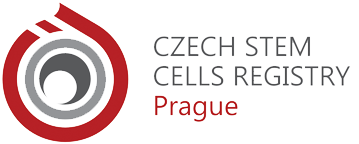After identification of suitable donor TC asks registry for so called donor work up. The preparative phase before either type of donation starts about 1 month before the actual date of collection. Blood samples are taken for laboratory test, chest X-ray (plus pelvis for BM) and ECG is done. The donor has to be medically checked and cleared for the donation.
Donor can always decline to donate, however, he/she has to bear in mind that after patient’s preparative regimen has started, the refusal to donate endangers patient’s life.
There are two possible ways of donation - periferal blood stem cells (PBSC) and bone marrow (BM).
Donor’s right is to decide which type of donation is more convenient for them.
Bone marrow donation is a surgical procedure that takes place in a hospital operating room. Donors are usually given general anaesthesia and marrow is aspired by a special needle from the back of the pelvic bones. This procedure may take about 1 hour.
The hospital stay starts one day before marrow collection with admission to the hospital. Second day in the morning the collection is performed and donor stays overnight for observation. The donor gets autologous blood unit during / after the collection to replace the blood loss.
There are some common side effect connected with the anaesthesia and the collection itself: sore throat, nausea, disorientation, back or hip pain, stiffness, bruising at the incision sites.
The pain is described to be similar to falling on the buttocks or to fatigue after exertion. The amount of donated bone marrow is about 5-10% of the whole volume – healthy organism is able to cope with the loss and majority of donors experience a full recovery in several weeks. Other complications are rare.
PBSC donation is performed by a process called apheresis at the special transfusion centre.
Before this procedure, donor’s stem cells need to be released from the bone marrow to the blood stream. Stem cells growth is stimulated in donor for 4 days before collection through subcutaneous injections of the growth factor – filgrastim (Neupogen®).
During the apheresis, a needle will be placed into each of your arms. Blood will be removed from a vein in one arm and passed through tubing into a blood cell separator machine. The blood is spun at high speed and the cells separate into layers. The machine collects PBSC, some platelets, and some white blood cells. Plasma and red blood cells are returned to your body through the other arm while the PBSC are put into a collection bag. All material used in the machine is sterile and used only once.
Majority of all PBSC donations are completed in one apheresis session, which may take up to 4 hours. Some donations need to continue on the next day with second apheresis session, which is usually shorter.
During the filgrastim administration donor can feel like “having a flu” – fatigue, muscle /joint/ bone pain, insomnia. These symptoms are temporary and can be treated with paracetamol medication.
During the apheresis can donor suffer from hypocalcaemia – temporary decrease of calcium ions level in blood which is felt like tingling in body, especially hands – but it can be amended by changing of apheresis conditions and calcium supplementation. Other side effects are rare.
Donor’s health is regularly checked for 10 years following the both types of donation.




